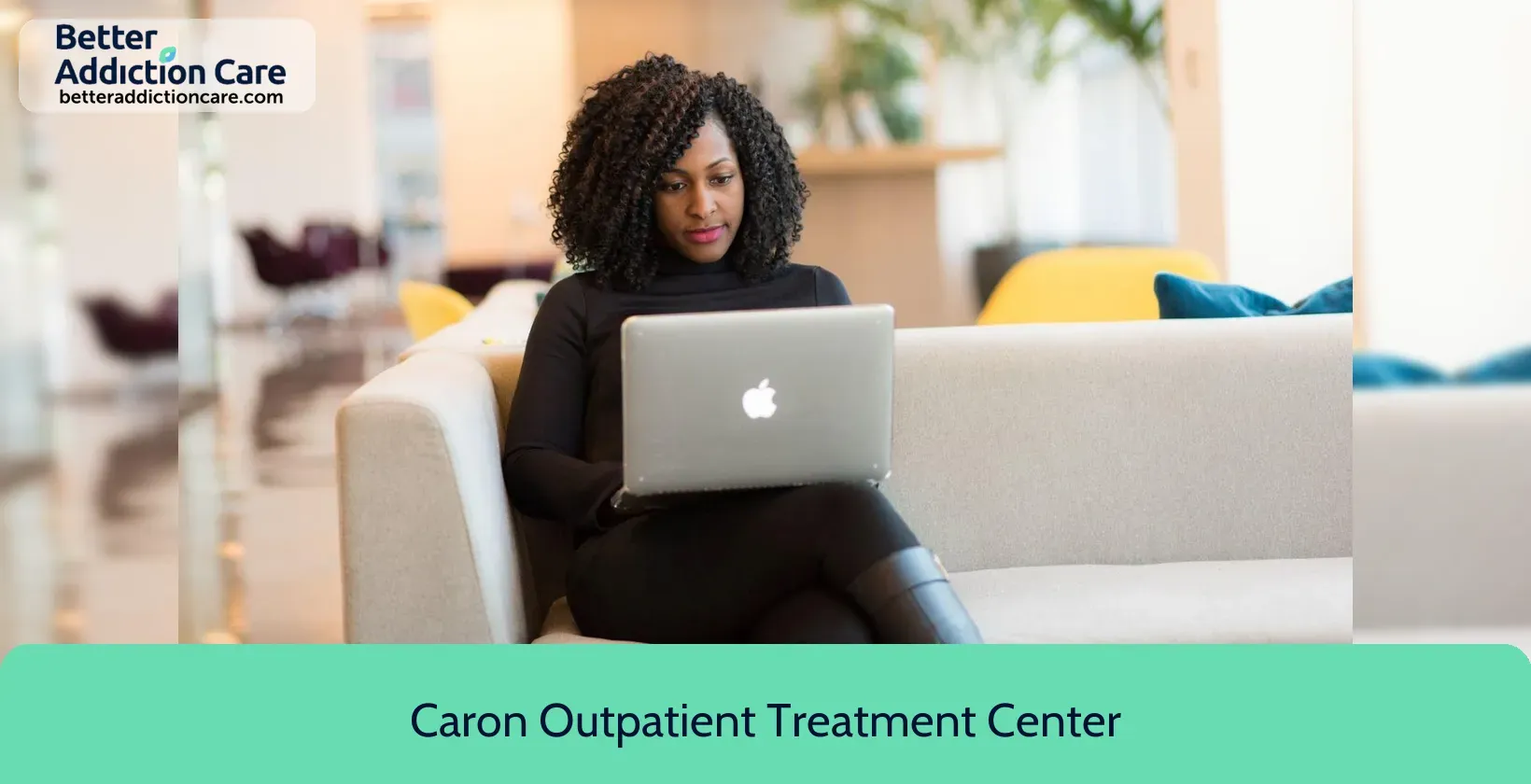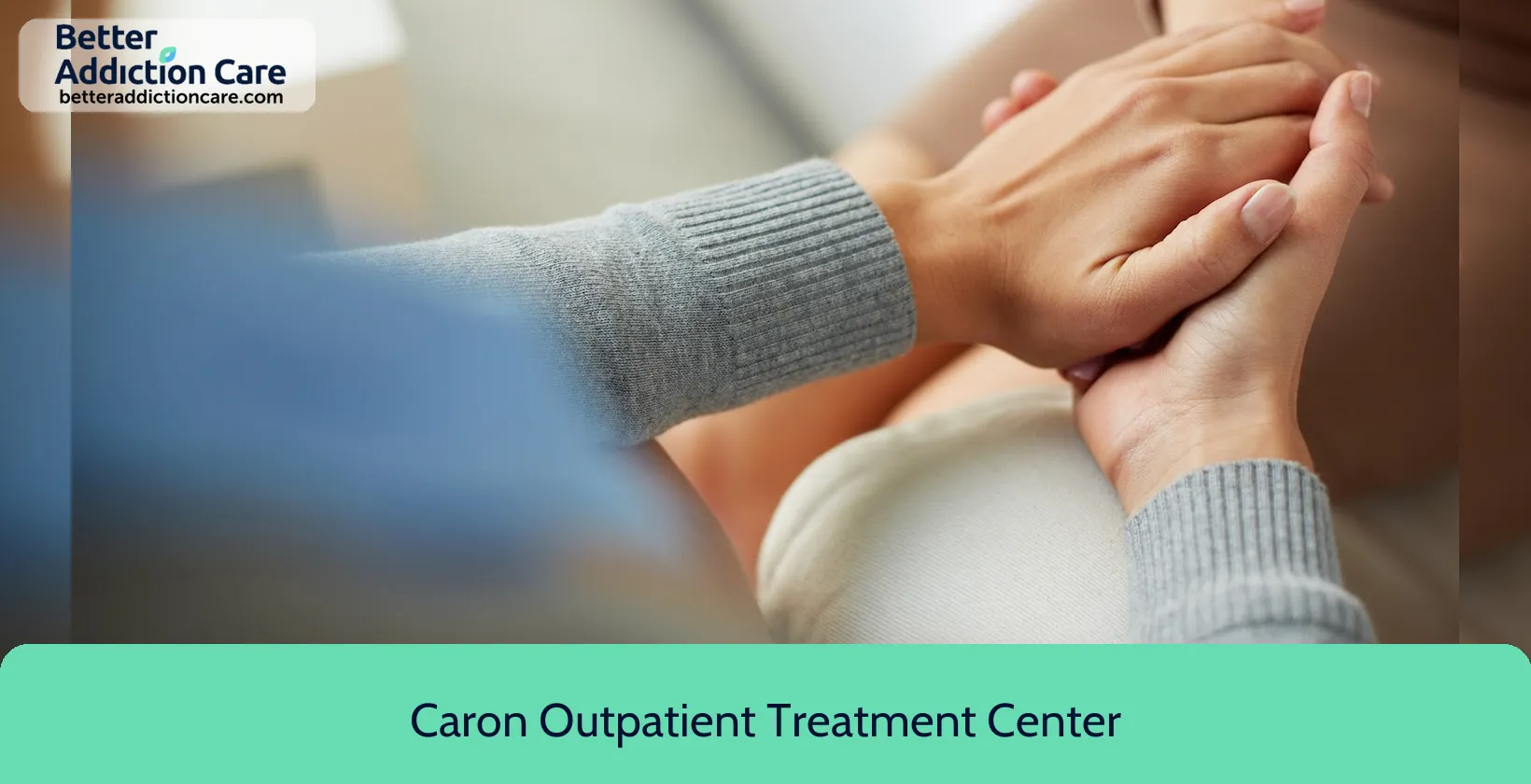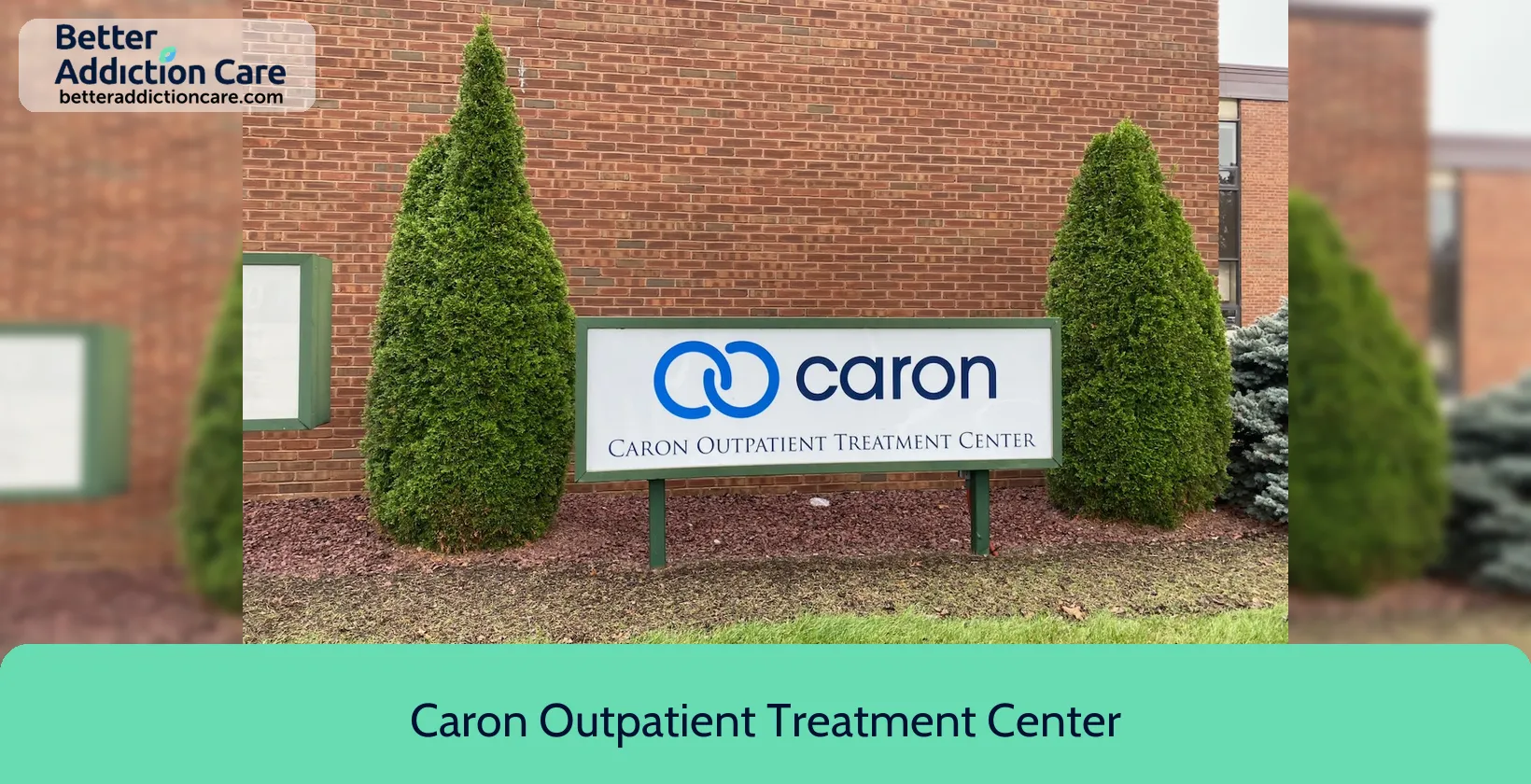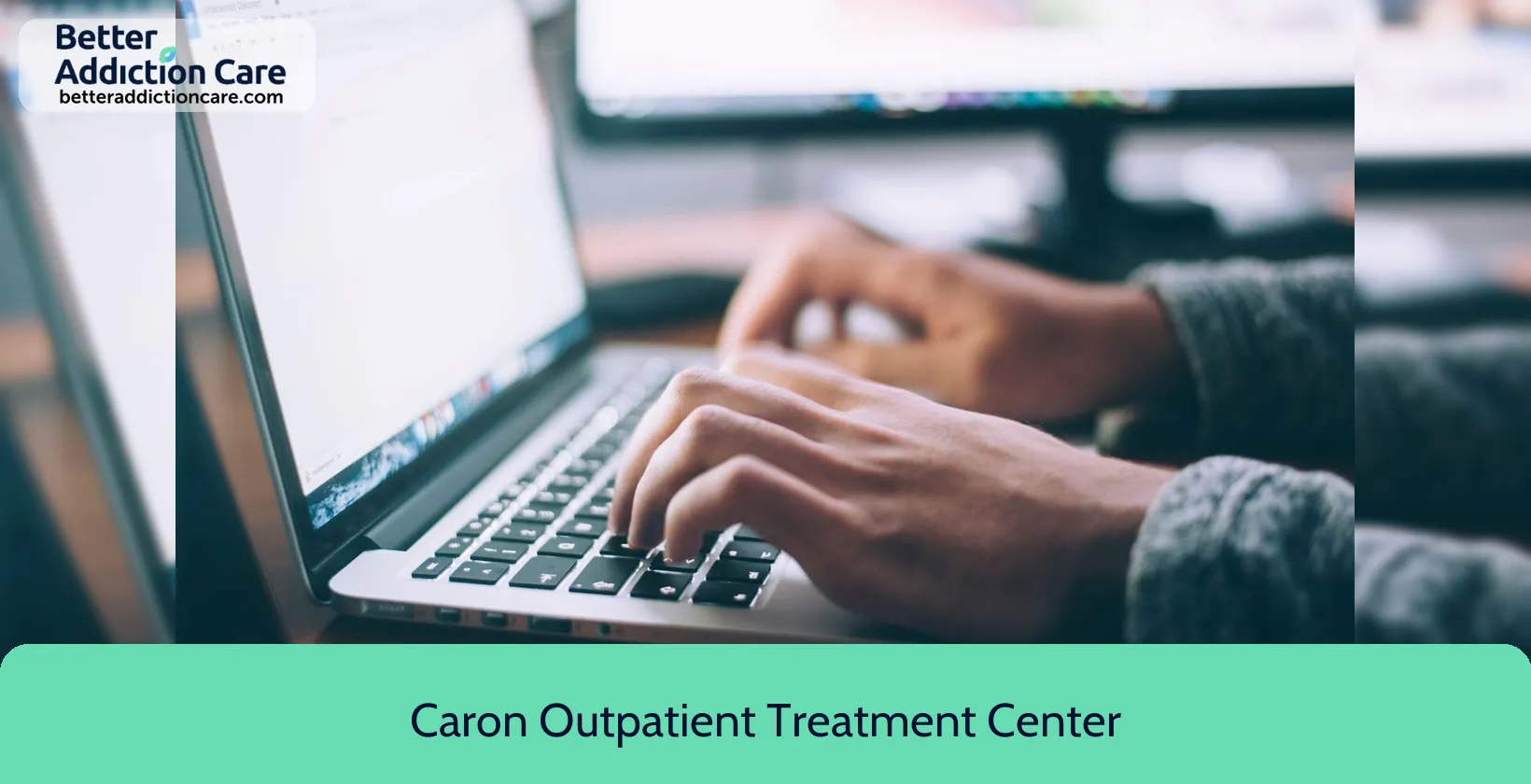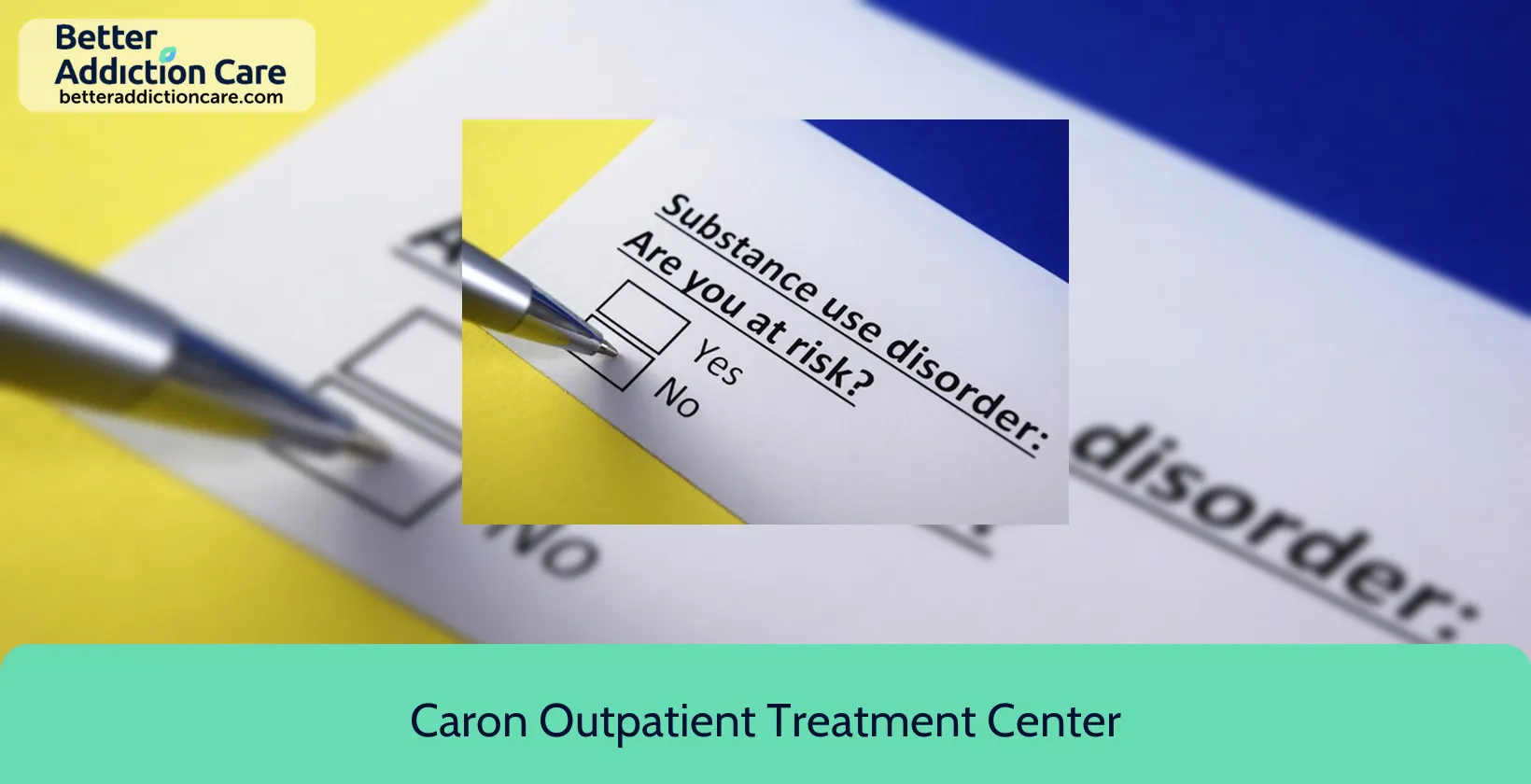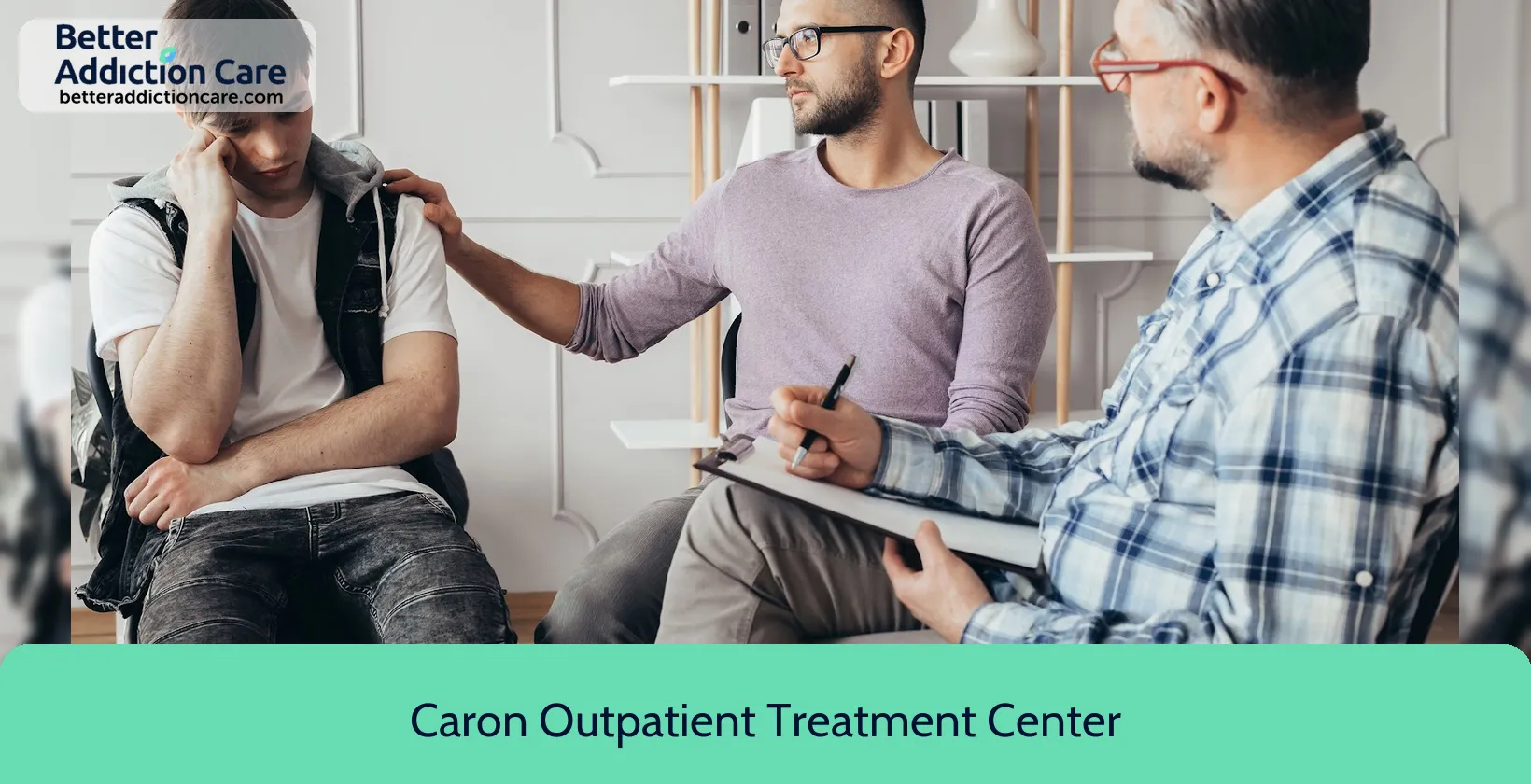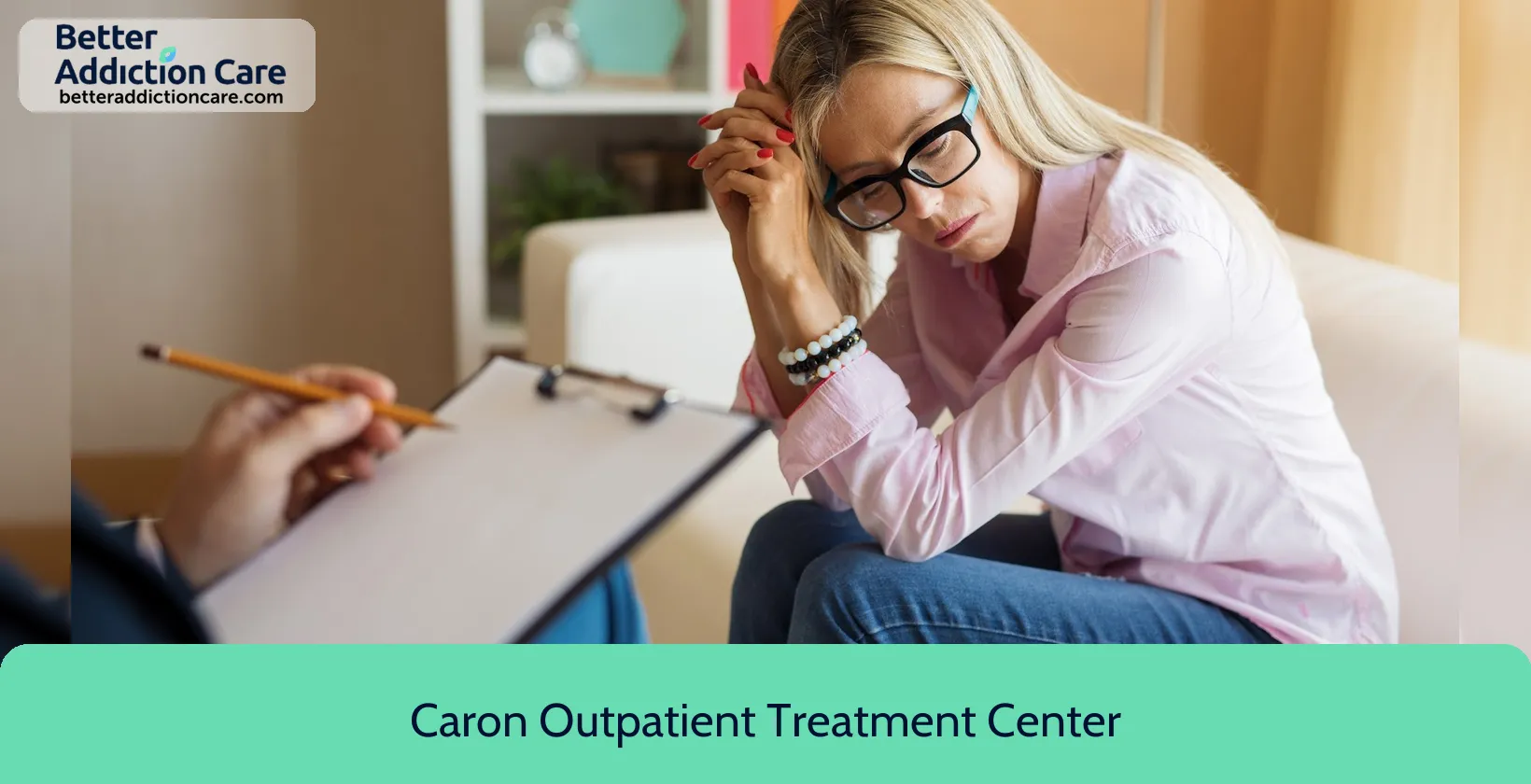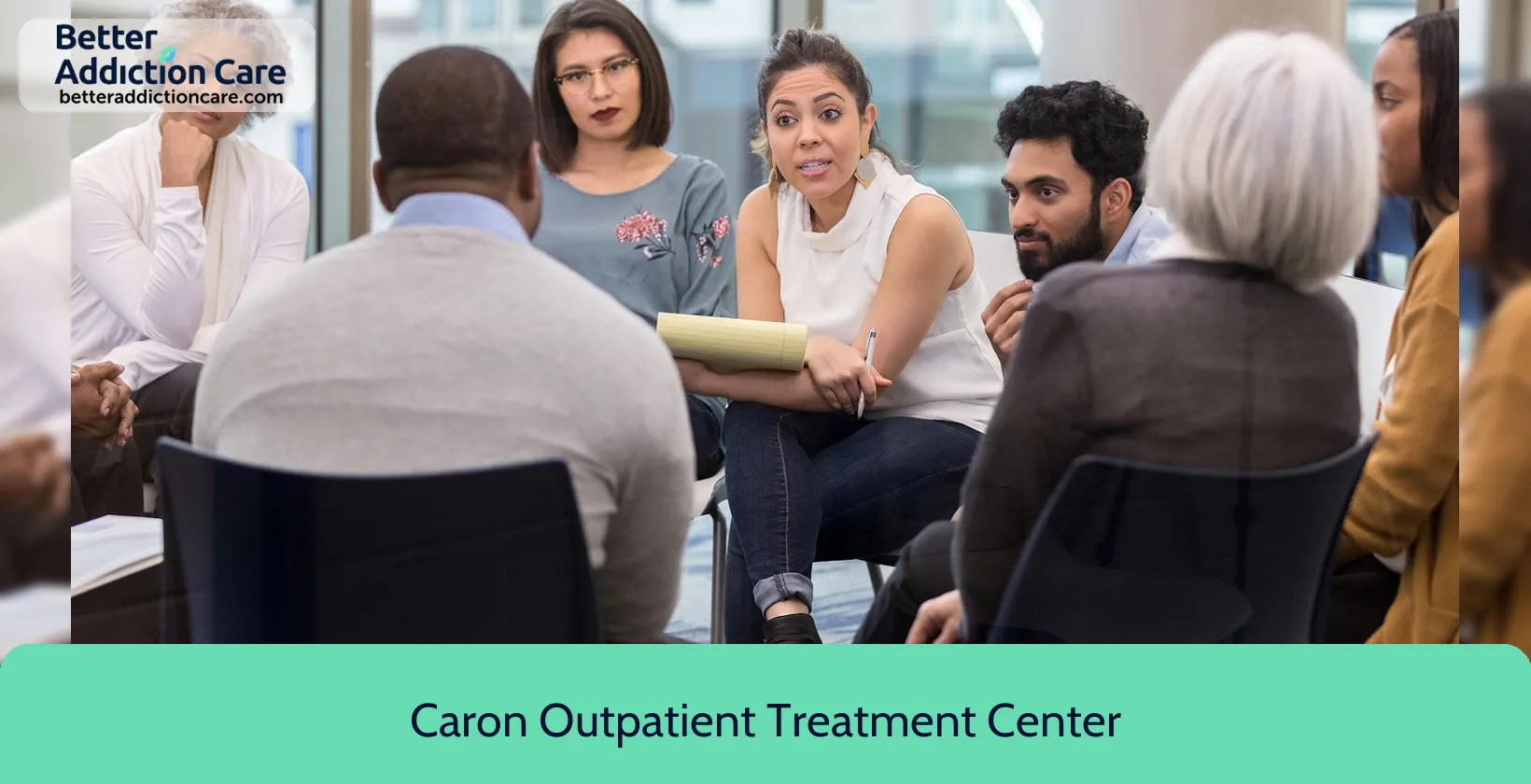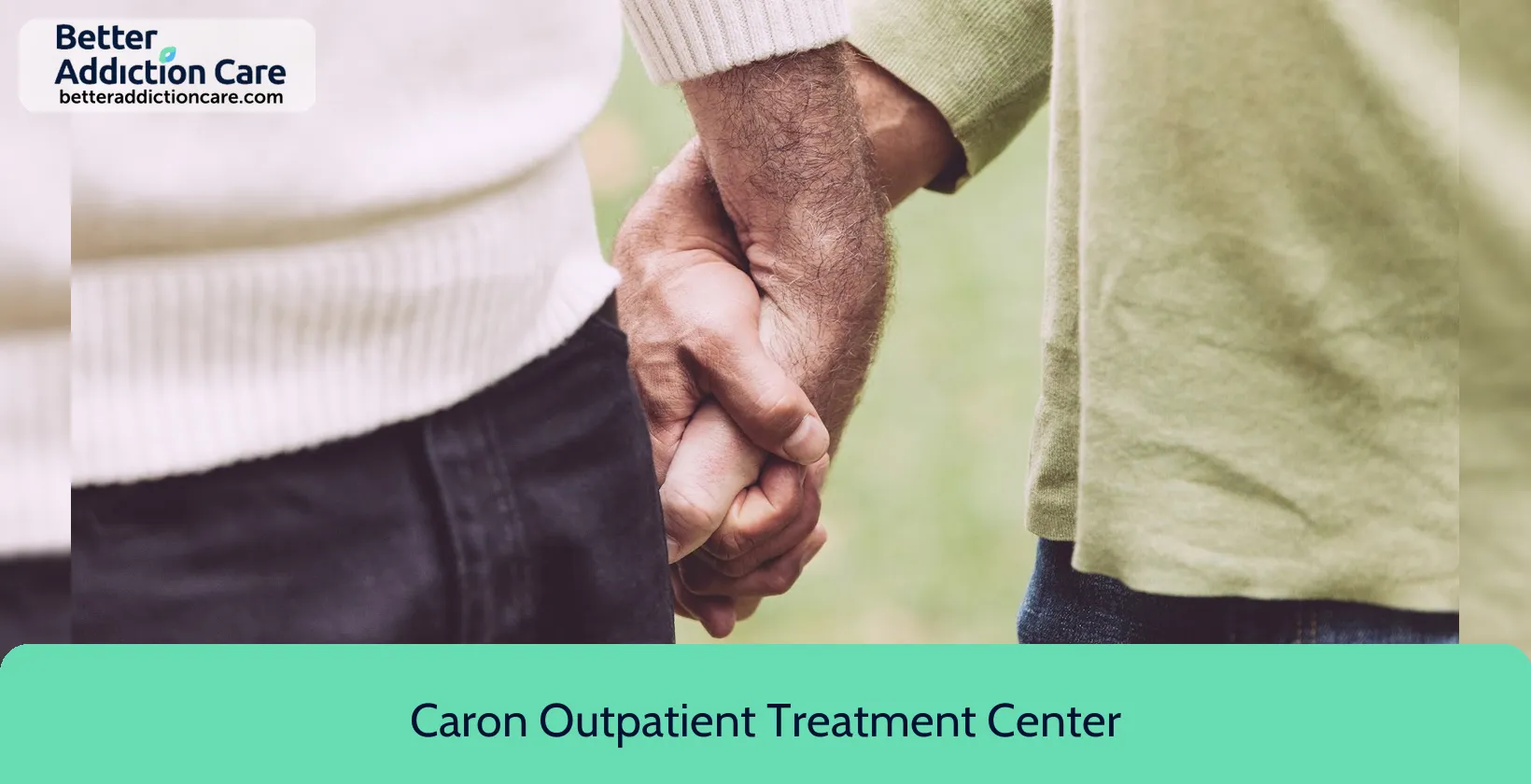Caron Outpatient Treatment Center
Overview
Caron Outpatient Treatment Center is a substance abuse treatment center for people seeking treatment near Berks County. As part of their treatment modalities for recovery, Caron Outpatient Treatment Center provides 12-step facilitation, family counseling, and individual psychotherapy during treatment. Caron Outpatient Treatment Center is located in Reading, Pennsylvania, accepting cash or self-payment for treatment.
Caron Outpatient Treatment Center at a Glance
Payment Options
- Cash or self-payment
- Private health insurance
- Payment assistance (check with facility for details)
- Medicaid
- State-financed health insurance plan other than Medicaid
Assessments
- Comprehensive mental health assessment
- Comprehensive substance use assessment
- Screening for mental disorders
- Screening for substance use
Age Groups
- Children/adolescents
- Young adults
- Adults
- Adolescents
- Seniors
Ancillary Services
- Case management service
- Mental health services
Highlights About Caron Outpatient Treatment Center
7.18/10
With an overall rating of 7.18/10, this facility has following balanced range of services. Alcohol Rehabilitation: 8.16/10, Drug Rehab and Detox: 6.62/10, Insurance and Payments: 6.00/10, Treatment Options: 7.94/10.-
Alcohol Rehabilitation 8.16
-
Treatment Options 7.94
-
Drug Rehab and Detox 6.62
-
Insurance and Payments 6.00
Accreditations
Commission on Accreditation of Rehabilitation Facilities (CARF):

CARF accreditation is a prestigious recognition for rehabilitation and human service organizations. It signifies that an organization meets high-quality standards and is committed to providing top-level care. CARF conducts rigorous evaluations to ensure compliance, enhancing an organization's credibility and reassuring clients and funders of exceptional service quality. This accreditation promotes excellence and continual improvement in the rehabilitation and human services field.
State department of health:

State Licenses, issued by government agencies, authorize rehabilitation organizations to legally operate within designated geographical areas. The specific licenses required for operation are typically determined by both the nature of the rehabilitation program provided by the facility and its physical location.
Treatment At Caron Outpatient Treatment Center
Treatment Conditions
- Mental health treatment
- Alcoholism
- Opioid Addiction
- Substance use treatment
- Co-occurring Disorders
Care Levels
- Intensive outpatient treatment
- Detoxification
- Aftercare
- Outpatient
- Regular outpatient treatment
Treatment Modalities
- 12-step facilitation
- Family counseling
- Individual psychotherapy
- Dialectical Behavior Therapy
- Trauma-related counseling
Ancillary Services
Additional Services
- Pharmacotherapies administered during treatment
- Holistic Treatment
- Breathalyzer or blood alcohol testing
Special Programs
- Persons with eating disorders
- Clients who have experienced trauma

Additional Locations
Get Help Now
Common Questions About Caron Outpatient Treatment Center
Contact Information
Other Facilities in Reading

6.68

6.77

6.62

6.79

6.56
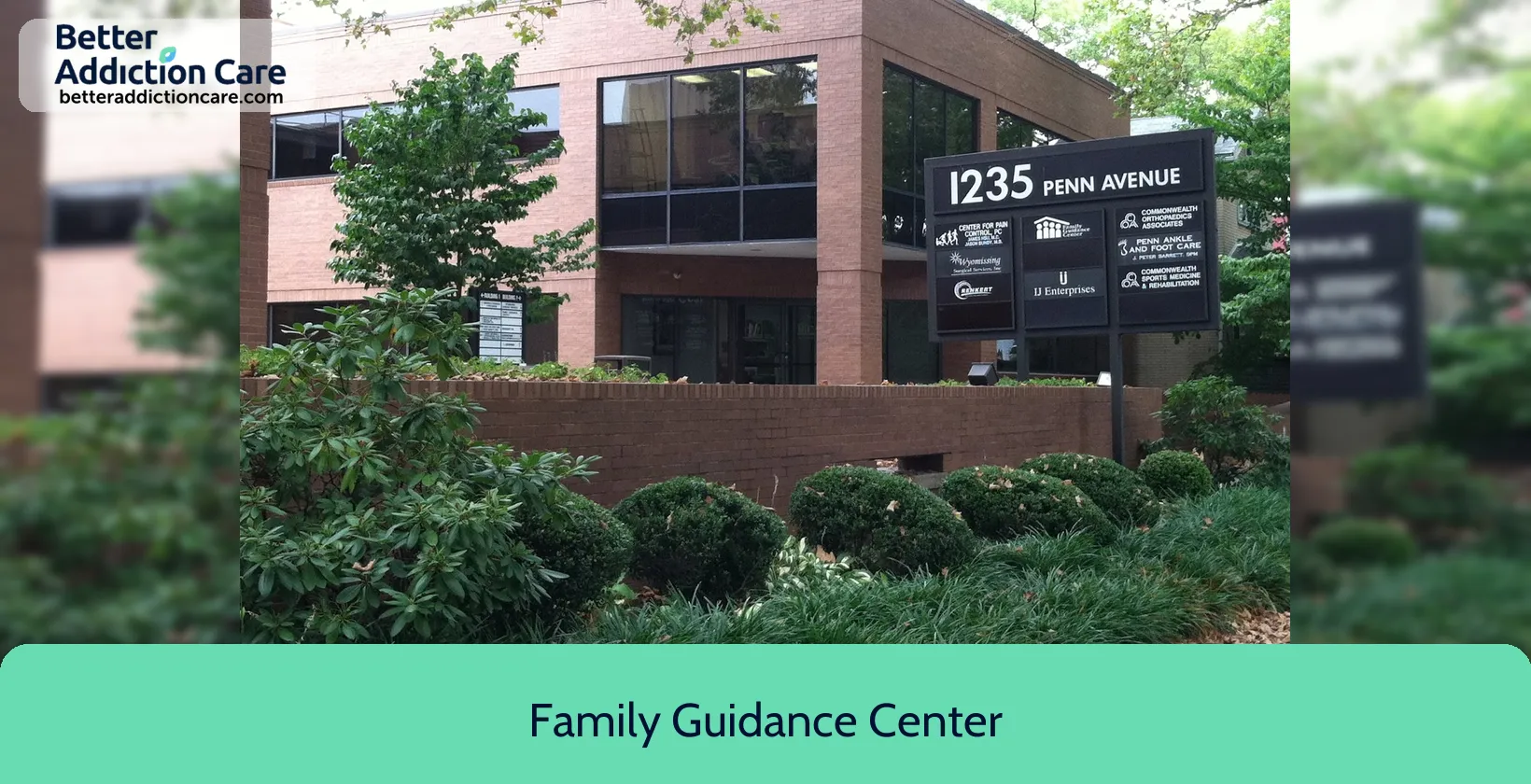
6.62
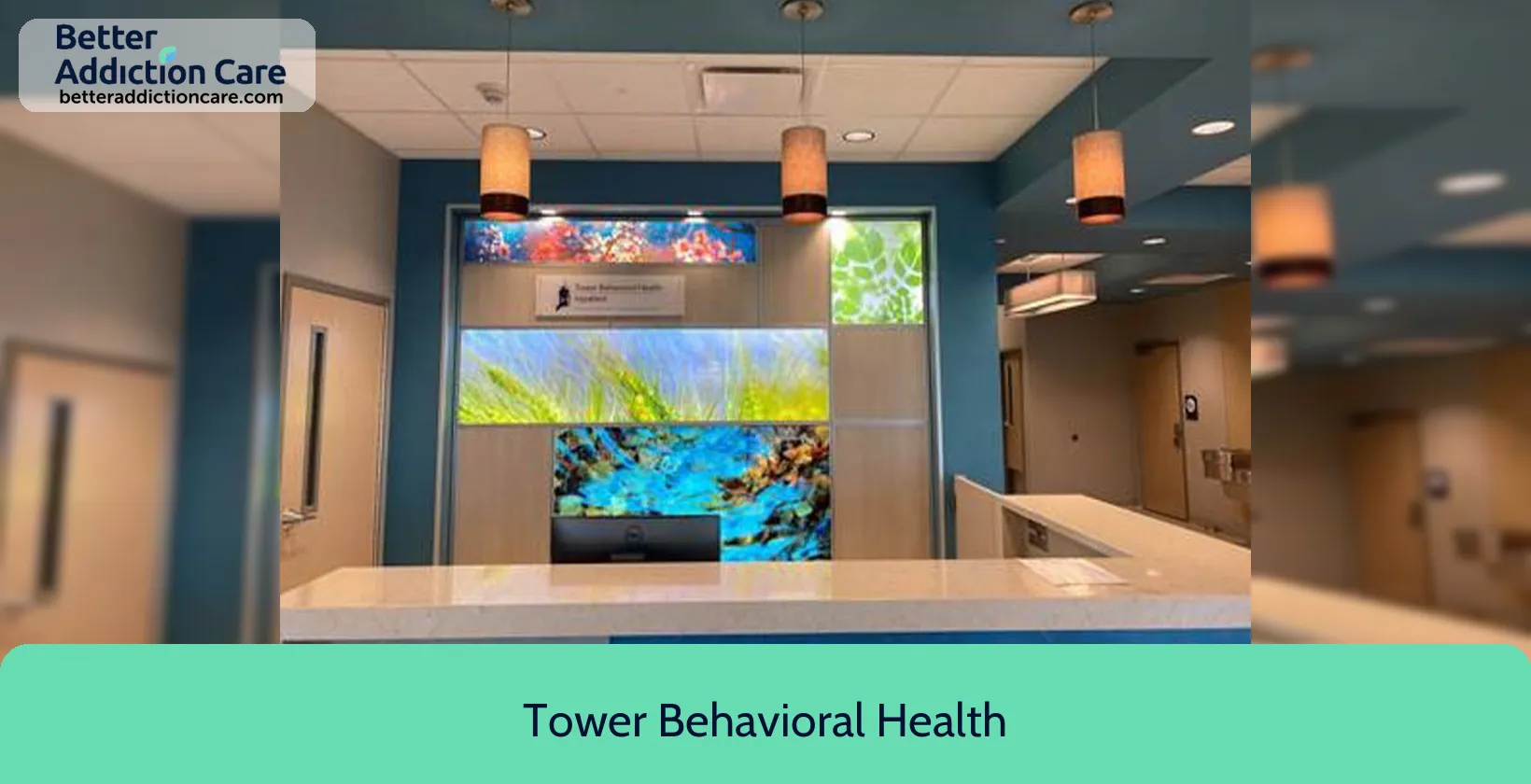
6.96
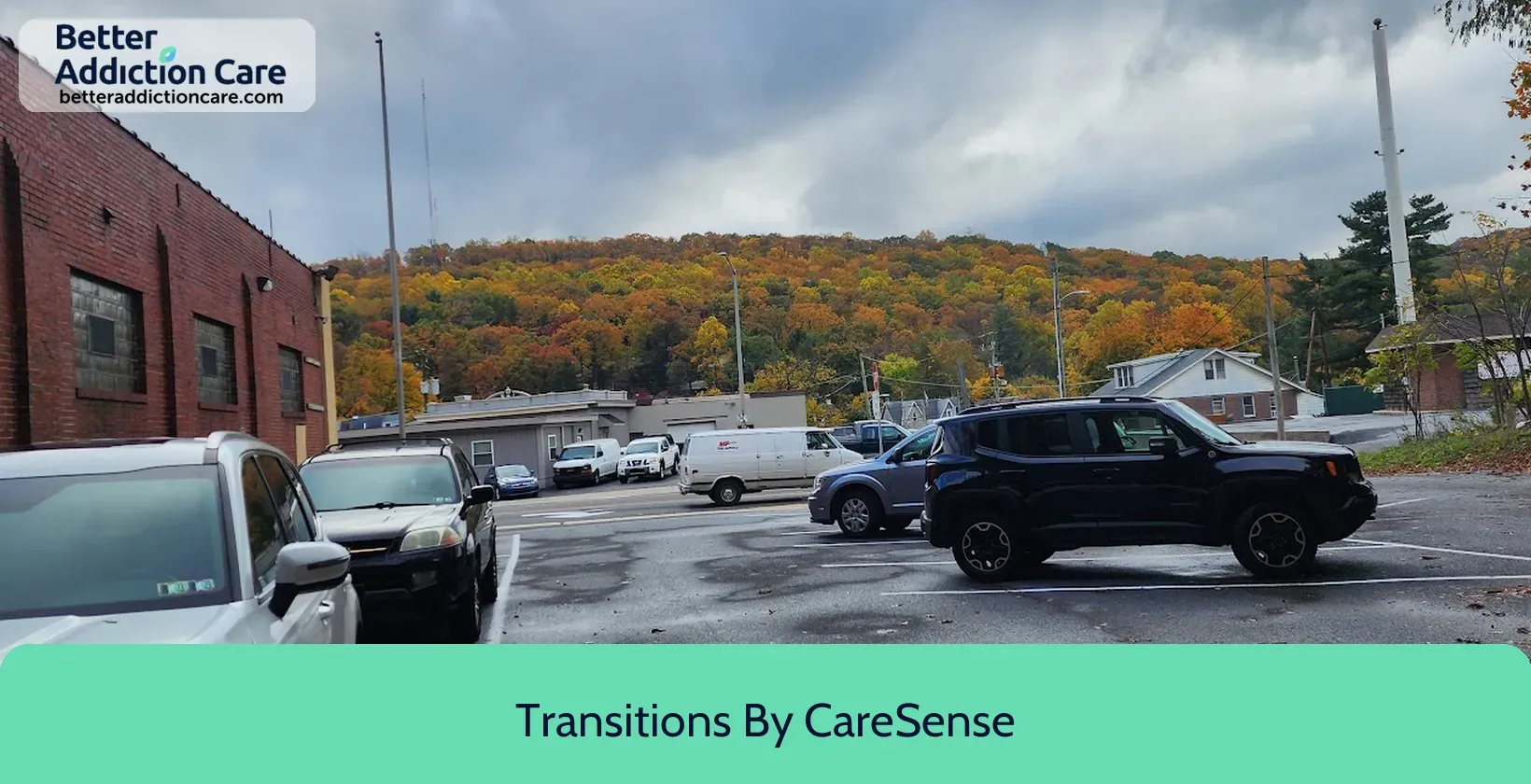
6.80
DISCLAIMER: The facility name, logo and brand are the property and registered trademarks of Transitions By CareSense, and are being used for identification and informational purposes only. Use of these names, logos and brands shall not imply endorsement. BetterAddictionCare.com is not affiliated with or sponsored by Transitions By CareSense.
